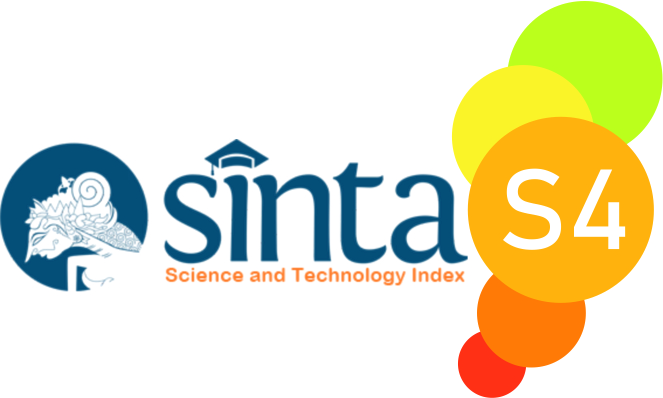Using Digital Stories in Reading Class
The New Literacy for Young Learners in 21st Century
Abstract
Reading achievement and willingness to get involved in reading activities among young learners are affected by their reading motivation and the texts they select for reading. Since there is software that makes stories readable on personal devices, using digital stories in the classroom is one of the strategies to promote reading skills and students' motivation to read. The purposes of this research are to know the implementation of digital stories in teaching reading to young learners and to know the advantages and disadvantages of the use of digital stories in teaching reading to young learners. This research uses a qualitative method. To collect the data, the researcher uses observation and interviews. Meanwhile, to analyze the data, the researcher uses data reduction, data display, and drawing conclusions. The results show that students can use digital stories easily. They click the link given by the teacher and choose the stories they like on the website. Some interesting features can be added to story content while they are reading the text, such as interactive exercises, quizzes, and discussions that are not available in the printed text. The strengths are that digital stories are used as an interesting learning tool, particularly for students who are accustomed to technology, and help young readers enhance their literacy skills and motivation. The weaknesses are the internet connection is sometimes unstable so the students are difficult to access the stories and no quiz menu in the website. It makes the students not challenged to read it at home.
References
Bandi-Rao, S., & Sepp, M. (2014). Designing a digital story assignment for basic writers using the TPCK framework. Journal of Basic Writing, 103–123.
Darvin, R., & Norton, B. (2014). Transnational identity and migrant language learners: The promise of digital storytelling. Education Matters: The Journal of Teaching and Learning, 2(1).
Dunwoody, S. (2021). Science journalism: Prospects in the digital age. In Routledge handbook of public communication of science and technology (pp. 14–32). Routledge.
Sahrullah, S., Putra, I. N. A. J., & Adnyani, N. L. P. S. (2023). Developing ICT-Based Supplementary Reading Materials for the Seventh-Grade Students at Madrasah Tsanawiyah Maarif Karangasem. Journey: Journal of English Language and Pedagogy, 6(2), 366-379. https://doi.org/10.33503/journey.v6i2.3156
Lambert, J. (2013). Digital storytelling: Capturing lives, creating community. Routledge.
Maddin, E. (2012). Using TPCK with digital storytelling to investigate contemporary issues in educational technology. Journal of Instructional Pedagogies, 7.
Quah, C. Y., & Ng, K. H. (2022). A systematic literature review on digital storytelling authoring tool in education: January 2010 to January 2020. International Journal of Human–Computer Interaction, 38(9), 851–867.
Rahmasari, B. S. (2021). The Use of Funny Story in Teaching Reading. Proceedings of the 5th International Conference on Arts Language and Culture (ICALC 2020), 534(534), 69–75. https://doi.org/10.2991/assehr.k.210226.049
Robin, B. R. (2008). Digital storytelling: A powerful technology tool for the 21st century classroom. Theory into Practice, 47(3), 220–228.
Scott, W. A., & Ytreberg, L. H. (1990). Longman Keys to Language Teaching: Teaching English to Children. In Longman Publishing (p. 119).
Sugiyono, P. D. (2015). Metode penelitian pendidikan (pendekatan kuantitatif, kualitatif, dan R&D)(Vol. 21). Bandung, Indonesia: Alfabeta, CV.
Yang, Y.-T. C., & Wu, W.-C. I. (2012). Digital storytelling for enhancing student academic achievement, critical thinking, and learning motivation: A year-long experimental study. Computers & Education, 59(2), 339–352.
Copyright (c) 2023 Brigitta Septarini Rahmasari

This work is licensed under a Creative Commons Attribution-ShareAlike 4.0 International License.

Journey: Journal of English Language and Pedagogy by http://ejurnal.budiutomomalang.ac.id/index.php/journey/index is licensed under a Creative Commons Attribution-ShareAlike 4.0 International License.






